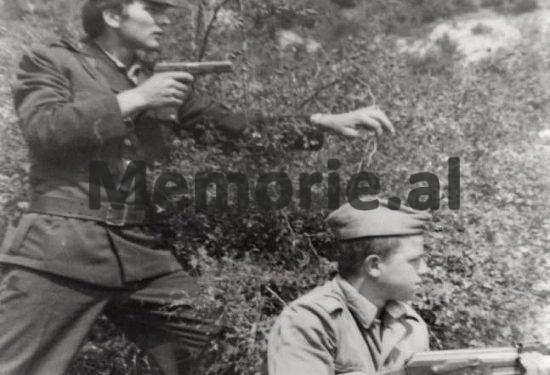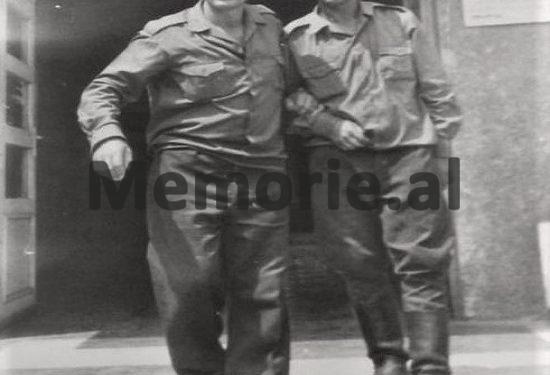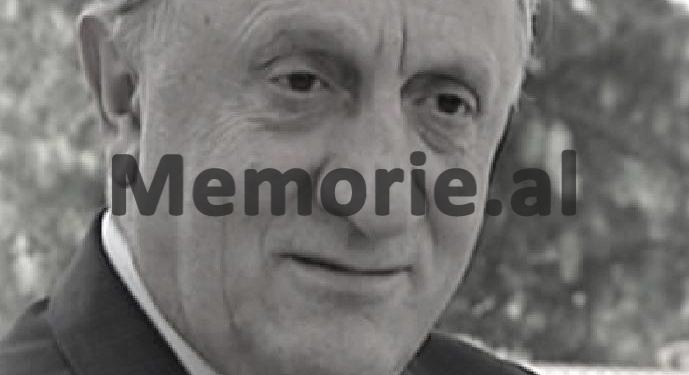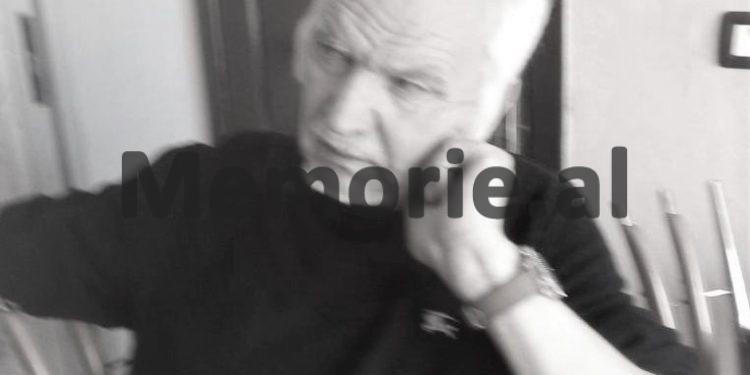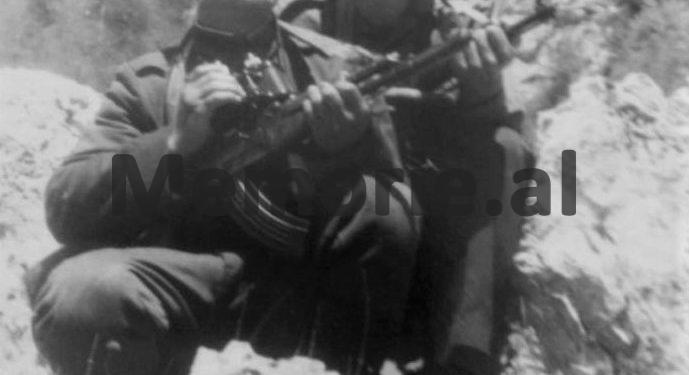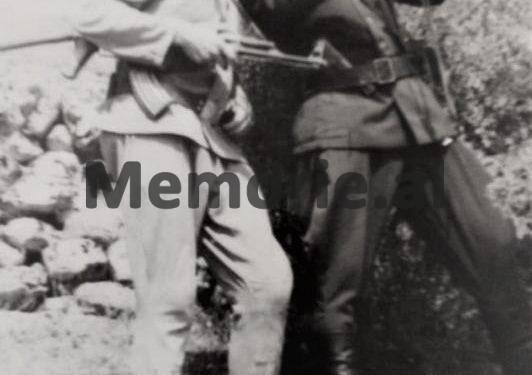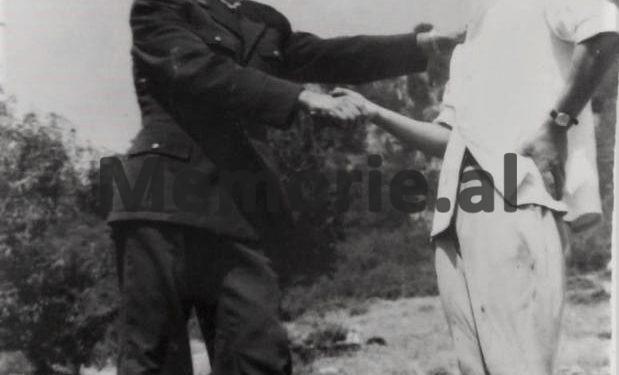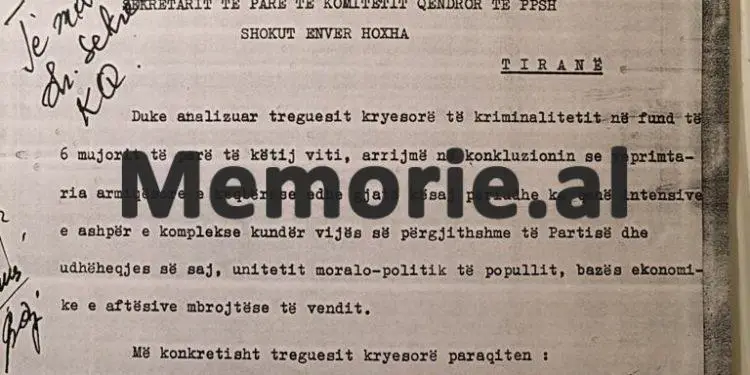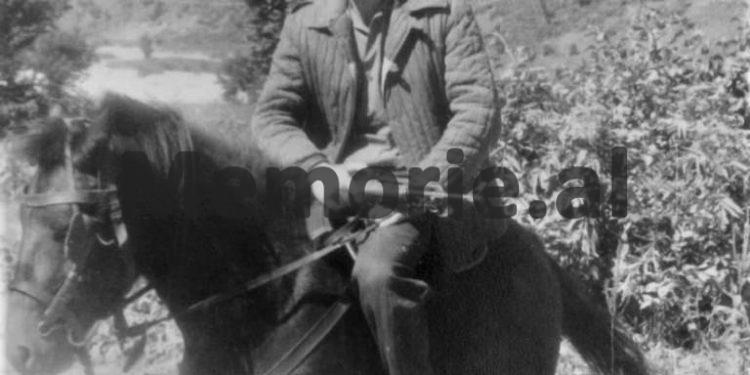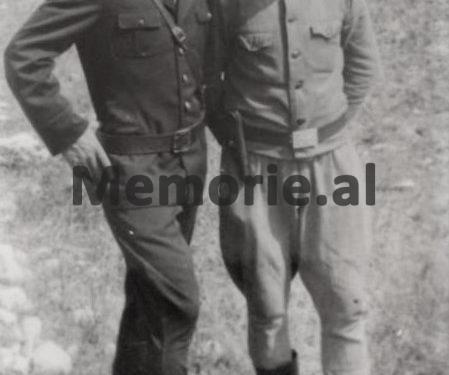Dashnor Kaloçi
The first part
Memorie.al publishes an interview with Mr. Nasi Gjika, originally from Përmeti, who after graduating from high school in the gymnasium of the city of Erseka where his family lived at the time, having a great passion for literature, competed at the Higher Institute of Arts in Tirana, but even though he won for the acting branch, he was not sent to the Arts, but to the High School of the Ministry of Internal Affairs, in Sauk, Tirana, which he completed in 1974, graduating in the Border branch and on August 9, that year, he was appointed commander of the Border Post, in the village of Mrek in Vermosh, which was considered one of the most difficult border crossings Albania had until 1990. Testimonies of former officer Nasi Gjika, regarding some of the extraordinary events that occurred in the period 1974-1982, when he served as commander of the Autonomous Border Company and later as head of Training in the Internal Branch of Shkodra. Such as the escapes to Yugoslavia of Gjeto and Kanto Visha in 1974, the escape of a family of five, in 1978 to a place called Livadhi Arusha, the escape of Nikol Hysaj (Gjeka), from Vermoshi, in July 1979, which managed to cross the border in a place called Gërxhare, until the killing of two young boys 22-24 years old, by the soldiers of the Tarabosh border post, over the village of Zogaj in August 1982, where one of them was the son of the Chief of Counterintelligence (Security) of the Internal Affairs Branch of Shkodra district, Pjetër Gjini. The archival document with the initials “Top secret”, of the former Minister of Internal Affairs, Feçor Shehu, sent to the Central Committee of the ALP and personally to Enver Hoxha, regarding the events that took place at the state border of Shkodra and all state border of the Socialist People’s Republic of Albania, for the period 1979-1980.
Mr. Gjika, can you tell us what is your origin, where were you educated and why did you choose to study at the school of the Ministry of Internal Affairs?
I am originally from the village of Lupska in the district of Përmet, where I was born and raised and finished 8-year school. But then my parents moved to the district of Kolonjë, where I finished high school, in the gymnasium of the city of Erseka. I had a great passion for literature at that time and in the high school period; I even managed to publish a small book, a novel, which was a great achievement for anyone at that time. In addition to literature, I also had a lot of passion and theater, or more precisely acting and at the end of high school, in 1968, I started preparing for the competition held at the Higher Institute of Arts and in Erseka came the actor Minella Borova, who worked with me and helped me a lot. I won the competition and while I was waiting to start my studies at the Higher Institute of Arts, I was informed that I had to apply in Tirana, near the High School of the Ministry of Internal Affairs, in Sauk, where I would start my studies at that school. .
Were you upset that his desire to go to the Higher Institute of Arts was not fulfilled?
Not only did I not get bored, on the contrary I did not hold back, I flew, as at that time it was a dream to go to the High School of the Ministry of Interior, especially in the Security branch. At that time, in the cinemas of the main cities of the country, the movie “Who are you Mr. Sorge” was released, where watching that movie and I as a young man, I dreamed and I felt like who I was…?! So in this situation and with those youthful illusions and indoctrination, I started my studies at the High School of the Ministry of Internal Affairs in Tirana.
In what branch were you assigned?
I studied for three years in the Border branch
After finishing school, where were you appointed?
After graduation, on August 6, 1974, I was appointed in the district of Shkodra, as commander of the Border Post in the village of Mrek of Vermosh, located above Selce which at that time, was one of the two most difficult border points, which had Albania, for the entire border line.
How did you expect the appointment in that remote area and even worse at that border point which as you say, was one of the most difficult?
Of course, I did not receive him well, because after graduation, I was called to a meeting by the head of Enver Hoxha’s escort group, Sulo Gradeci, who asked me at length and with what I understood, I had been selected to serve in the service group, which was close to Enver Hoxha, which apparently had come because of the high results I had had in the High School of the Ministry of Internal Affairs. And while I was waiting to be appointed to that place, which was a privilege for everyone, suddenly the appointment came to me in the district of Shkodra, even in Vermosh, (today it is under the administration of Malësia e Madhe), the farthest and most remote point difficult, as I told you. Of course, I was upset about where I was appointed, I was leaving the streets of Tirana and the alleys of the “Bloc” of leadership, and I was going to the northernmost tip of the country, amid great difficulties, between steep mountains where winter lasted six months and snow it only melted in summer… ?!
Why did this happen, why was your name not approved to work in Enver Hoxha’s service group, could you find out?
Yes, I could learn it later, not officially, but from other sources, in a friendly and social way. The reason for not sending me there, next to Enver Hoxha’s service group, was an uncle of mine, who was in Greece, where he had gone as an economic emigrant, since the period of the Zog Monarchy. But even though we as a family had no connection or correspondence with him, this was the reason, to serve with Enver Hoxha, the biography passed through the needle hole.
How many people were at the Mreka border crossing?
The border point I commanded had 26 soldiers and three cadres, two officers and a non-commissioned officer, who was with the border dog. But I did not stay there long, as I was promoted to commander of the Vermoshi Border Company, which at the time was at Prek Cali’s house, where I had my office. I told you that I was promoted, as it was called Autonomous Company and was in the battalion rank and I was subordinated to some other border points and posts, such as: Lëpushë, Budaç, Bashkim (where the company was headquartered), Sefërç, Velipoja, Frames and Meadow of Arusha. At the center of the company, the unit that I commanded had 7 subordinate officers, who held various duties, such as: Chief of Liaison, Chief of Intelligence, Chief of Intelligence, Chief of Armament, Chief of Engineer, etc.
At the time you were serving at this border point, were there any escape attempts?
From 1974 onwards there were almost no escape attempts, due to the somewhat good relations that existed between Albania and Yugoslavia. The Yugoslav side returned those who fled and based on this fact, there was no attempt to escape. I recall that at that time, there was only one escape, where two people, Gjeto and Kanto Visha, managed to escape from Selca e Vermoshit, leaving for Yugoslavia, in the area of Montenegro, and they were not returned by the Yugoslav side.
But after that, in the years that followed, was there an escape and what happened in such cases with the border units, so was anyone penalized or punished?
In 1978, if I am not mistaken, 4 or 5 members of a family escaped, crossing the border in a place called, Livadhi i Arushës, in the area of Vermosh. That family had organized a family dinner, which was called “gost thiu”, that is, a dinner where a pig was slaughtered and on that occasion, the owners of the house call friends. Taking advantage of this opportunity, those 4 or 5 people (I do not remember now exactly how many there were) were able to escape, traveling for about 9 hours, until they crossed the state border and left for Yugoslavia, the Yugoslav side, just like Geto e Kanto Vishaj did not return them.
What happened after this event to the border wards of that area?
Their escape caused a great commotion, numerous gatherings and analyzes were made in the Border wards of that area, as well as in the Shkodra Branch of Internal Affairs, and as a result, the Ministry of Internal Affairs decided that, where they passed they, so in the place called Meadow of Arusha, to establish a border post, which was called Post of Meadow of Arusha.
Remember there were other cases of escape by different people, in the border area where you served in those years?
A year later, in July 1979, there was another escape. Nikol Pjetër Gjeka or Nikol Hysaj as he was known at the time, who was from Vermoshi, was able to cross the state border all alone, crossing to Gërxharë Lipovica, after crossing about 4 hours from the center of Vermoshi.
How did his escape happen and measures were taken against the border ward where he crossed?
I remember this event, Nikolla’s escape, very well and I know everything in detail, because for his escape, I took action with a warning for dismissal and demobilization from the army. Nikolla was from Vermoshi, but due to biographical problems (his father, Pjetër Gjeka, killed at the border in the 1950s, was accused of killing the pioneer Nik Pjetër Ndreka “People’s Hero”), Nikolla was fired from the border area and he lived and worked, somewhere in Bushati of Shkodra, if I am not mistaken. Based on this fact, every time Nikola came to Vermosh, to his relatives, brother, etc., I, as the commander of the border company of that area, was signaled by the Internal Branch of Shkodra, for all the moves that Nikola would make, as he was obliged to show them when he received the permit, to come to that border area. This was done so that I, as the commander of the border of that area, could take the appropriate measures to strengthen the border protection, which was also done for the Counterintelligence bodies, ie the State Security bodies, which also took their own measures, for his pursuit and surveillance, as they had the rules and duties.
Did this only happen to Nikolla, who was informed about the strengthening of the border service?
Not only for Nikolla, but also for all those other people like Nikolla’s work, that is, who had various biographical problems, which were followed and monitored and were being processed by the State Security. For each of these people, as soon as they crossed the beam in Rrapsh, where the clone gate was and everyone was checked, especially those like Nikola, me personally as the border commander of that area, I was signaled that someone passed at the checkpoint of Rrapshës.
Were you signaled for Nikolla?
Of course I was alerted and took measures to strengthen the service, but Nikola managed to cross the state border and went to the area of Gucia, as he was a resident of the area and knew the place quite well, so much better than us members of military units of the border. According to the information that became known later, the day before he escaped, Nikola was seen in the center of Vermosh, drinking coffee and was said to have been very upset. It was the last moment when Nikola was seen and after that, he took the road and escaped, describing a road, about 4 hours on foot, to cross the state border, from where he came out to Yugoslavia, in the area of Guca.
His escape caused a commotion and apart from you, who said that you were warned for dismissal, what other measures were taken, was anyone penalized?
The escape of Nikol Hysaj, caused a great commotion and numerous meetings and analyzes were made, but surprisingly, except for me, who said that a warning measure was taken, for dismissal from duty and demobilization by the army, there were no other measures.
Why did this happen, was it not a Security game, his escape?
No, Nikola’s escape was not a Security game at all, it was an escape, I’m telling you how and under what circumstances he was forced to escape. A little above I told you that Nikola had biographical problems, because his father, Pjetër Gjeka, who had fled Albania in 1949, if I am not mistaken, was accused as if, sometime in the early 50s, he had come from abroad as a saboteur, together with another and had killed Nik Pjetër Ndreka, a 13-year-old pioneer, who was later declared a “People’s Hero” and books, movies, etc. were made for him. Based on this fact, as a family with a bad political composition, as it was said then, Nikola’s family had been interned in the Tepelena Camp and Nikola himself, as the son of an “enemy of the people”, until the day he escaped, was under the supervision of the bodies of the Ministry of Internal Affairs, ie State Security, etc.
You said that Nikolla’s father was accused of killing Nik Pjetër Ndreka, why was that not true?
It was not true at all, as not only all Vermoshi knew, that that little boy, had lost his life tragically, after he had slipped off the cliff, guarding the cattle, and Nicholas’s father had nothing to do with that event, but the family of Nik Pjetër Ndreka knew that too. But even though this was known to everyone, (even to us Border Guards serving in that area) no one dared to say openly that you were going to prison directly. The party and the state had declared him a “People’s Hero”, saying that the saboteur Pjetër Gjeka had killed him and that job had been closed, who could he say that it was not so?!
Why were measures taken only against you?
Given the biographical problems that Nikoll Hysaj had, in that period of time, a few months before his escape (I cannot say exactly how much), he had a lot of pressure from the bodies of the Ministry of Internal Affairs, for him to cooperate with them . This, that Nikola had a big problem with those of the State Security, was known not only by us Border guards, but was also learned by the people and fellow villagers of Nikola. This was easily understood as they viewed the Security men’s swearing at Nicholas, or he himself telling them to a family member or his trusted friend. Given this fact (and also given how events unfolded later), logic says, that Nikola is faced with two or three alternatives…!
That were…?!
The first, to agree to become a collaborator with the State Security and to spy on his fellow villagers and others who would be required by these bodies, the second, to refuse to do that job and risk arrest and imprisonment, and the third to put his head in danger and flee abroad, as he did in fact. So, in a way, Nikolla chose the most difficult path, eventually fleeing Albania.
How was that escape commented on to the people at the time and there were doubts that it could be a State Security game? So that Nikola could have been sent abroad on a mission by the state?
Like any event of this nature, there were definitely rumors, even more so than could have happened with other escapes, before, or even after. But I, from the tasks I had, (both in the border area and then in the Shkodra Branch of Internal Affairs), from the information I had completely and categorically exclude that it was a game of State Security. For such things, for the State Security combinations, (I mean when the state sent people on missions abroad), there were some strict rules at the time that could not be bypassed by anyone, whoever he was. The first, when the state would send someone abroad on a mission, the commander of that border area was called one day before, where the person in question would pass and he was explicitly told: “From the operational data we have, tomorrow from this hour until this hour “in some country, there can and is expected to be border violations from inside to outside, or from outside to inside and you must take measures, with all the forces and means at your disposal, to strengthen the service in that country”. After that, I, as the border commander, or any other colleague of mine, had no right to ask, even in a single word, how and how, but that order was carried out with the utmost precision. That is, all border forces that had checkpoints or border points had to be focused on those coordinates, to determine the superior and the rest, left blank. This was done so that the person who would leave the country on a mission would not be in danger of being killed by the border guards, as the soldier is known to kill at the border, as has happened in dozens of cases with various violators. . During the period that I served in the Border units, if Nikolla had been sent by the state on a mission abroad, we would have been instructed not to cover Gërxhara (the place where he crossed the border) with service, but let it be discovered, that there is no danger.
Were you not instructed where to strengthen the service?
Absolutely not and only this fact, excludes any possibility or conjecture that he may have been sent abroad by the mission state. When the bodies of the Ministry of Internal Affairs, or more precisely the State Security, recruited an associate, we at the border units were not given any information about him. As for Nikolla, as I told you, we were given information on his movements, until the last day he was able to escape. But Nikola, to put the Security organs to sleep, started a family, so it seems to me that he got engaged at that time. Regarding the suspicions that may have been cast about Nikolla’s escape at that time, the State Security organs also had a strong weapon, which often worked very successfully: “Misinformation”.
Which means…?
Which means that the Security organs, with their methods and people, opened the word about various events, so that the people would believe, what was of interest to those organs and the state itself. Thus, even in cases of escape, when someone fled abroad, the bodies of the Ministry of Internal Affairs and mainly those of the State Security, to preserve their image and at the same time to discredit the person who escaped, both inside and outside the country, they said, as if the state had sent it on a mission abroad. And vice versa, when the state sent a man abroad on a mission, to camouflage him, he opened words that as if he was an “enemy of the people”, he took measures against his family, deporting him, etc. Even in the case of Nikolla, it seems that the “weapon” of misinformation, which was often used by the State Security, functioned as no better.
What about the measure that was taken only against you, how do you explain it…?!
Immediately after that event, ie Nikolla’s escape, a control team came from the Border Directorate of the Ministry of Internal Affairs and the Counterintelligence Branch, which checked the entire practice, ie service books, etc. Measures were taken only against me, ie with a warning for dismissal from duty and until release from the army. I think this was related to the fact that I, had had good results in my work, so I had not had such problems and also to the fact that Nikoll Hysaj, was a resident of that area and he knew much better than we, all that border line. So, there were such cases in the whole border area of Shkodra district where I was serving at that time. Memorie.al
The next issue follows




